„Im Gespräch“
Subversiv, humorvoll, feministisch: Cornelia Sollfrank im Gespräch mit Susanne Führer, bei Deutschlandfunk Kultur, 17. September 2025
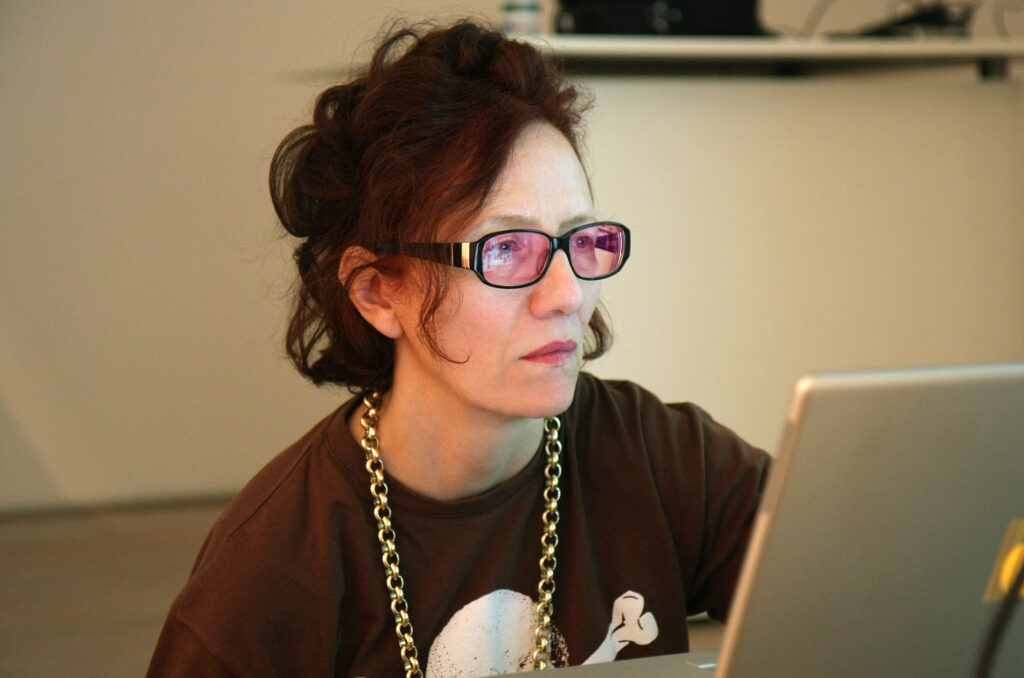
conceptual art
Subversiv, humorvoll, feministisch: Cornelia Sollfrank im Gespräch mit Susanne Führer, bei Deutschlandfunk Kultur, 17. September 2025

Written By Agnes Ferenczi for Kate Vass Gallery, Zürich
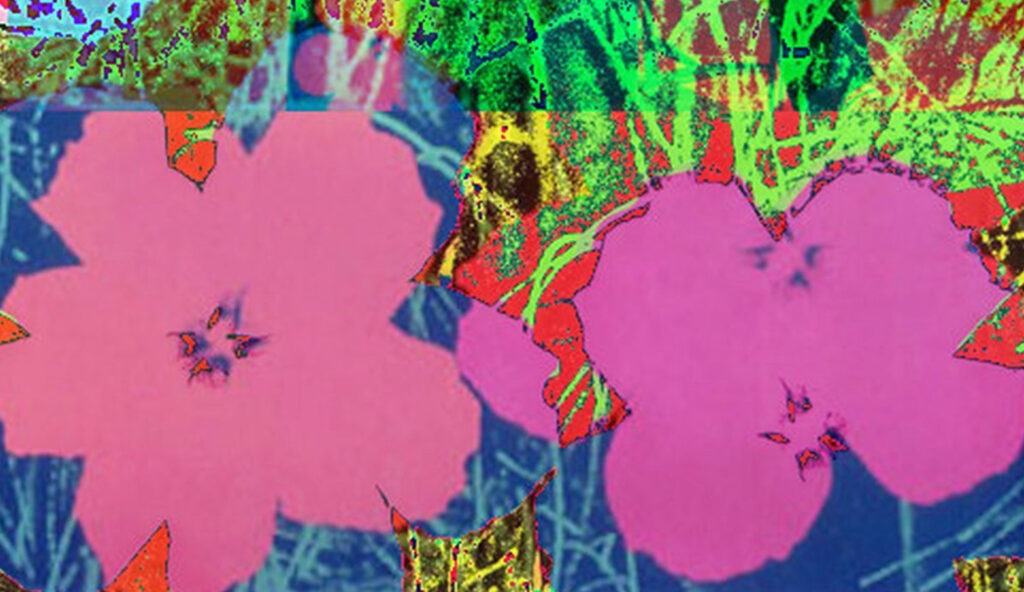
The “anonymous_warhol-flowers”, an integral part of the ongoing artistic research project “This Is Not By Me”, was initiated in 2004 by Cornelia Sollfrank. This project represents Sollfrank’s exploration into themes such as digital authorship, originality, copyright, and ownership. By employing the net.art generator with a focus on the iconic Warhol flowers as a case study, she examines these concepts. In this article, we delve into the creation process and background of this work, offering insights into the complexities and legal nuances of artistic expression in the digital age.
e-book by Cornelia Sollfrank and Winnie Soon
Breaking points between code and culture – exemplified by the net.art generator. Starting with a broken tool, the two artists engage in a thrilling dialogue about code, the aesthetics of the dysfunctional and the female coder as the lasting exception.
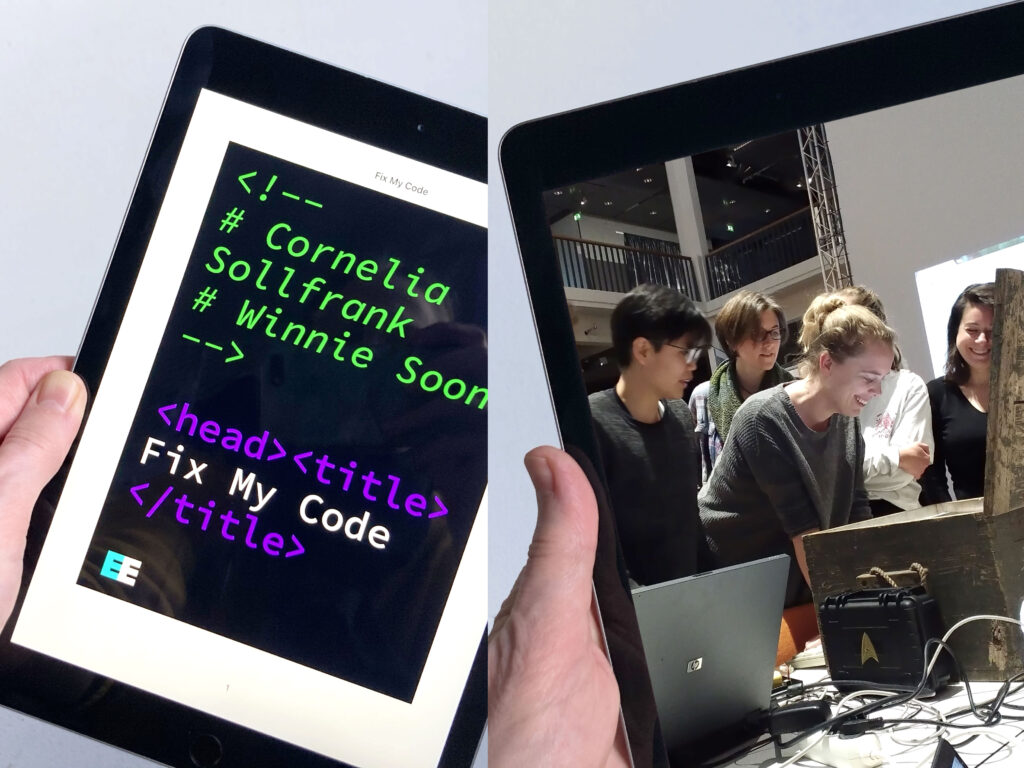
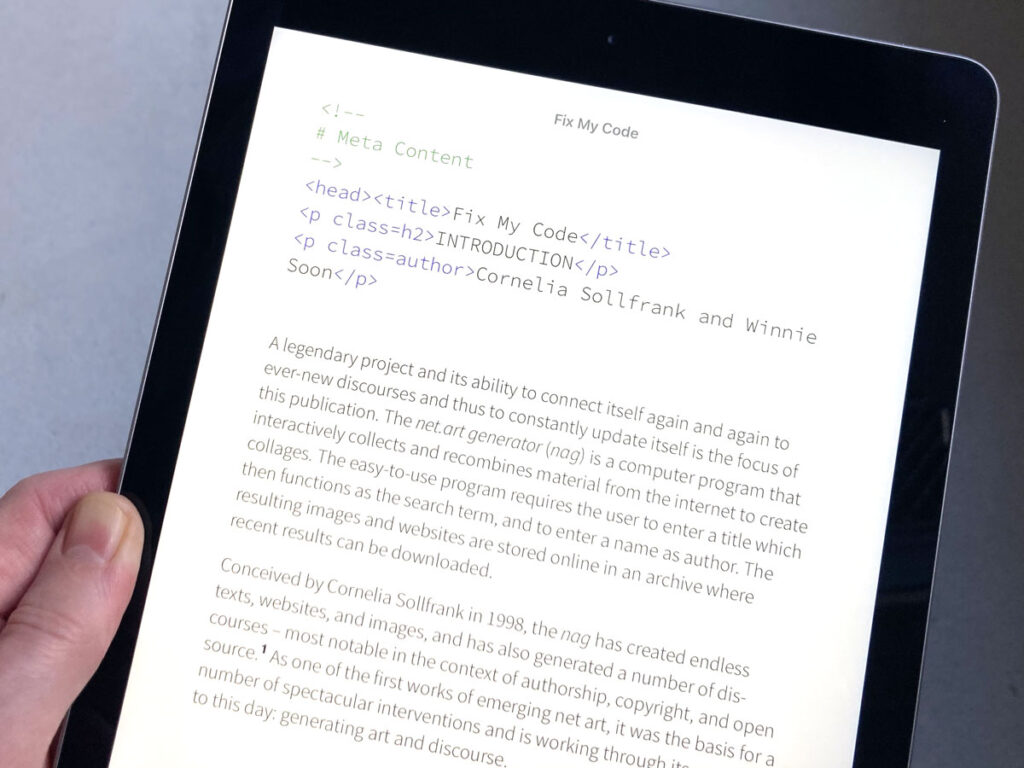
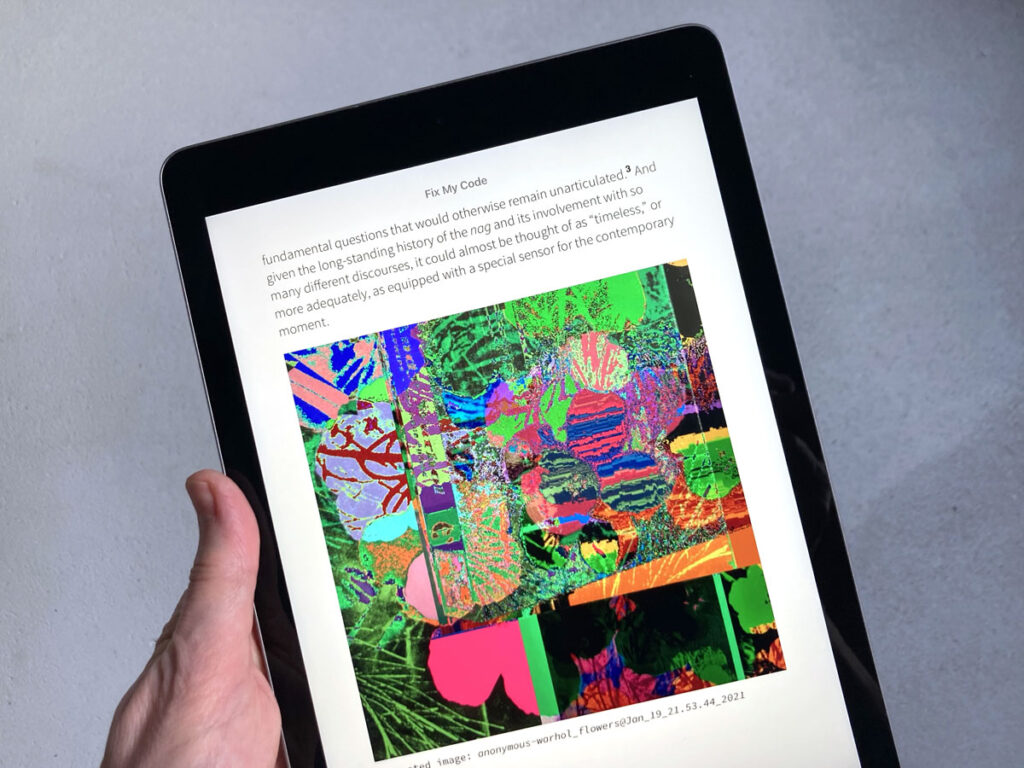
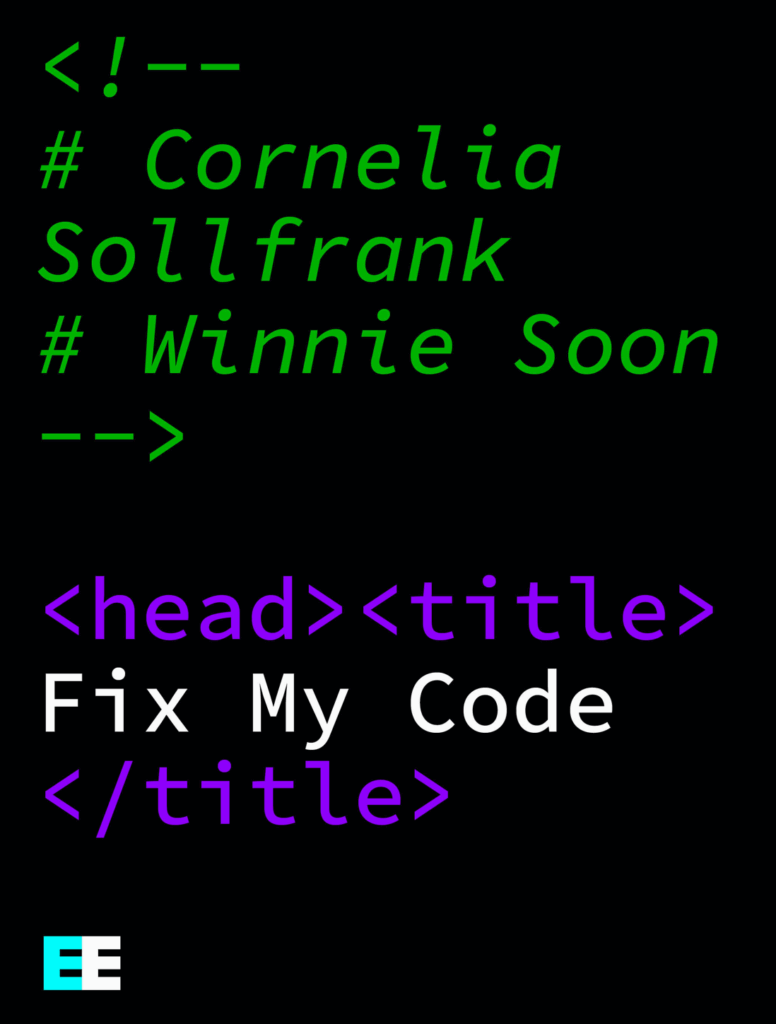
Open access at EECLECTIC Berlin
London, 6 May 2021
Marc Garett in conversation with Cornelia Sollfrank as part of The Radical Friendship Podcast Series by Furtherfield, London.
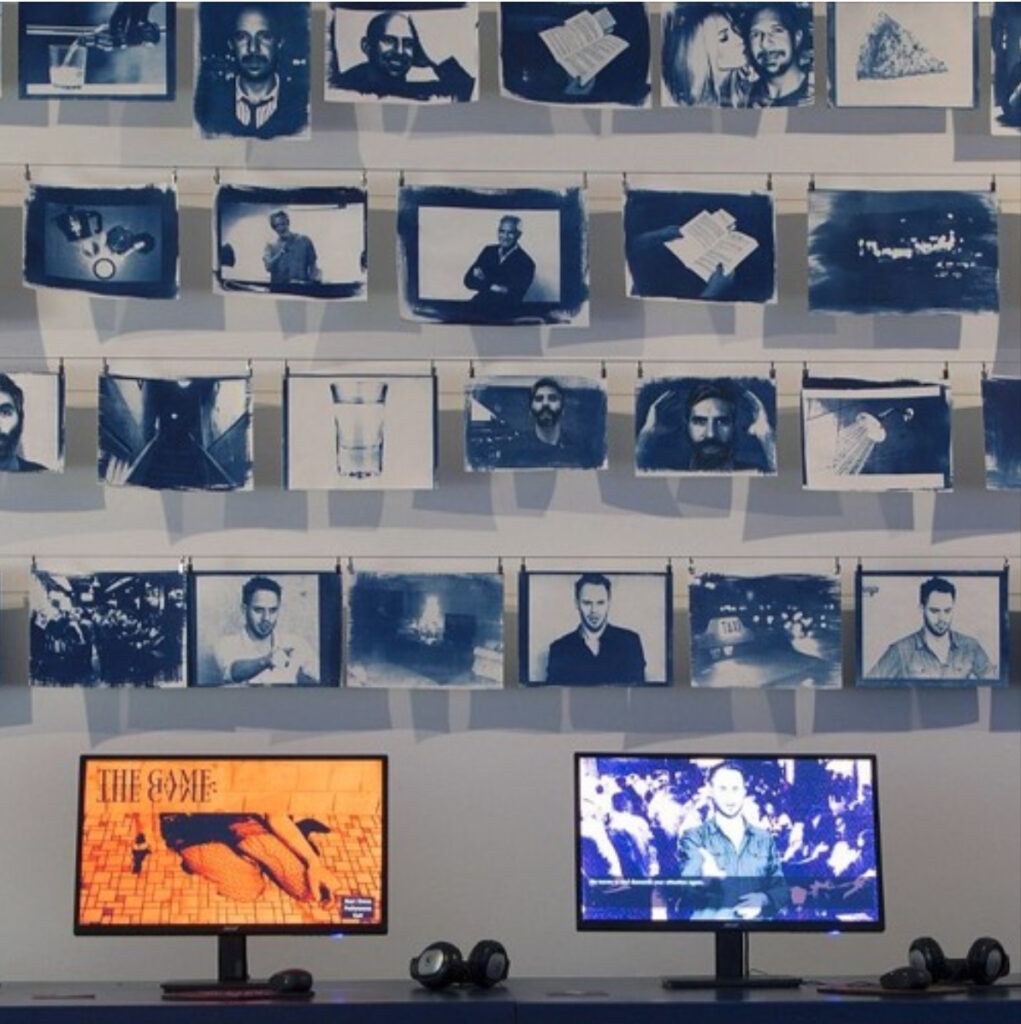
Cornelia Sollfrank and Felix Stalder / 2021
The two editors of the volume Aesthetics of the Commons (Diaphanes 2021), Cornelia Sollfrank and Felix Stalder, discuss with Westminster Papers in Communication and Culture (WPCC) the potential and meanings of the digital commons in creating new subjectivities and new imaginaries on and off the internet.
ZKM Karlsruhe // online // 14 April 2021
Cornelia Sollfrank and Winnie Soon present the open access publication »Fix My Code« and show how the »net.art generator« as a conceptual tool has not only produced new art continuously, but also keeps on generating new discourses.

Participants: Cornelia Sollfrank, Winnie Soon, Janine Sack, Morgane Stricot and Matthieu Vlaminck, Annet Dekker (moderation), Margit Rosen. Link
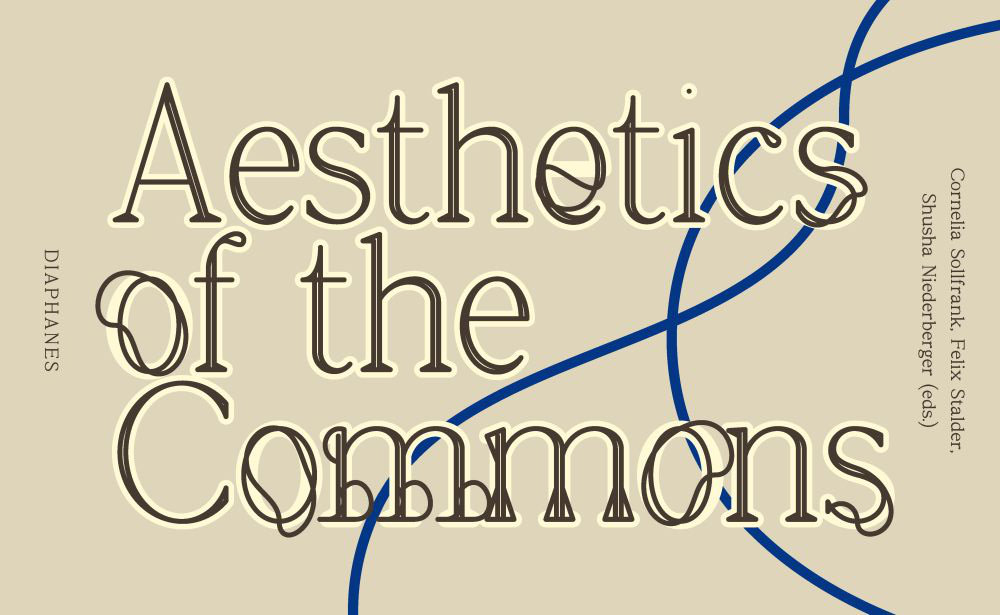
What do a feminist server, an art space located in a public park in North London, a ‘pirate’ library of high cultural value yet dubious legal status, and an art school that emphasizes collectivity have in common? They all demonstrate that art can play an important role in imagining and producing a real quite different from what is currently hegemonic; that art has the possibility to not only envision or proclaim ideas in theory, but also to realize them materially. The book collects ten essays that take up aspects of the cultural and artistic projects that were part of the research project Creating Commons, and brings them into conversation with different fields ranging from cultural, political and feminist theory, philosophy, curatorial studies, and art education.
Aesthetics of the Commons, Sollfrank, Cornelia, Felix Stalder and Shusha Niederberger (eds.), Zurich: Diaphanes (2021)
Softcover, 276 pages
Open Access PDF, 276 pages
https://www.diaphanes.com/titel/aesthetics-of-the-commons-6419
https://creatingcommons.zhdk.ch/aesthetics-of-the-commons/index.html
London, 9 December 2020
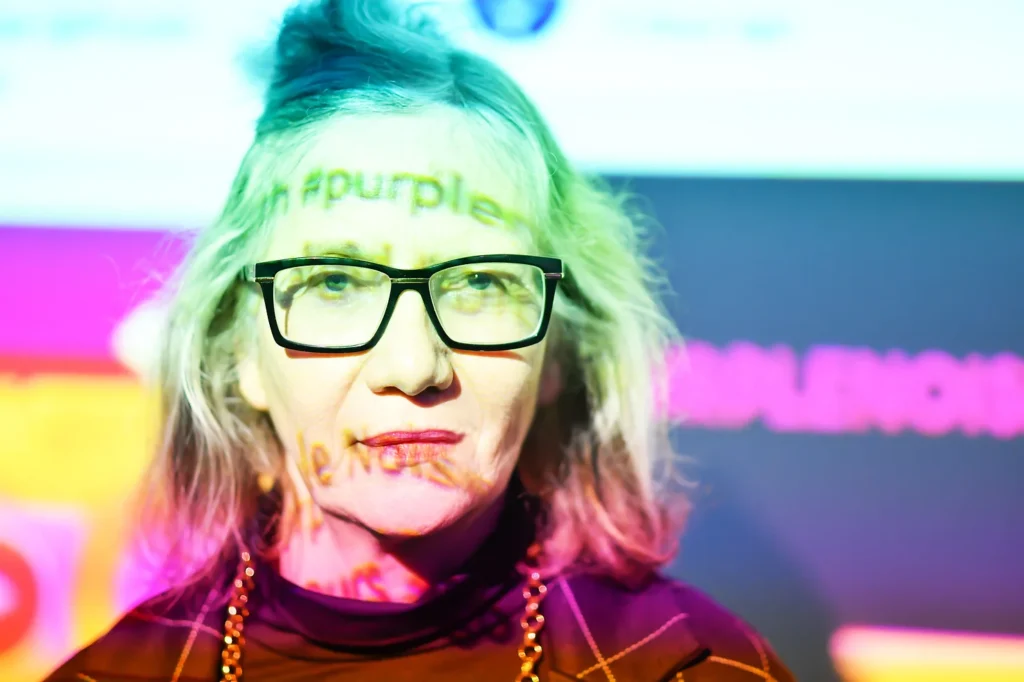
Interview of Cornelia Sollfrank for Museum of Contemporary Digital Art (MoCDA), London. Maria Cynkier talks with the artist about her creative practice, generative art, the power of decentralization and commons, and resisting patriarchal structures in tech.
WOZ Die Wochenzeitung CH / 1. Mai 2020/
Das Versammlungsrecht ist ausgehebelt, für den 1. Mai sind offiziell nur ein paar Streams geplant, die niemanden stören werden. Sollen wir jetzt zur grossen Onlinedemo aufrufen, oder hat die Linke sowieso gerade andere Probleme? Von David Hunziker
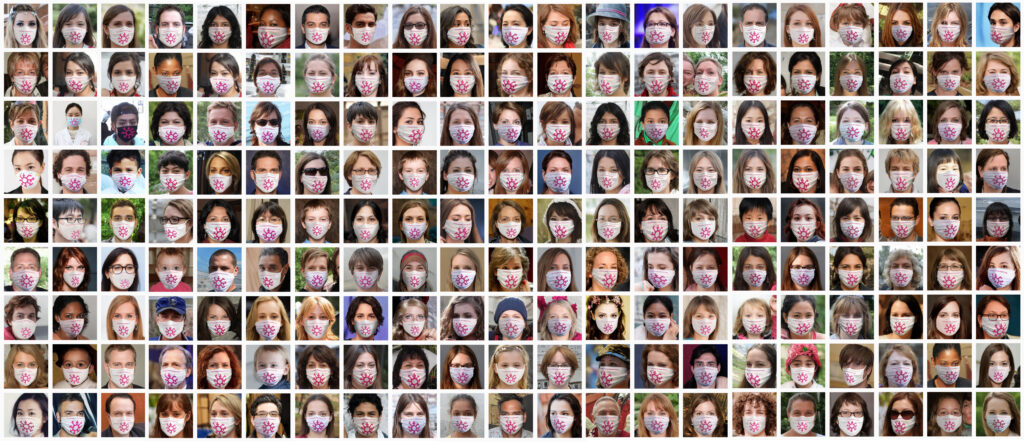
(exhibition catalogue) The exhibition OPEN SCORES was related to the artistic research project Creating Commons and brought together a series of practices through which artists articulate their specific forms of digital commons. From online archives to digital tools/ infrastructure and educational formats, the projects envision a (post-)digital culture in which notions of collaboration, free access to knowledge, sustainable use of shared resources, and data privacy are central. For the exhibition, each of the projects created a unique score to present their practice.
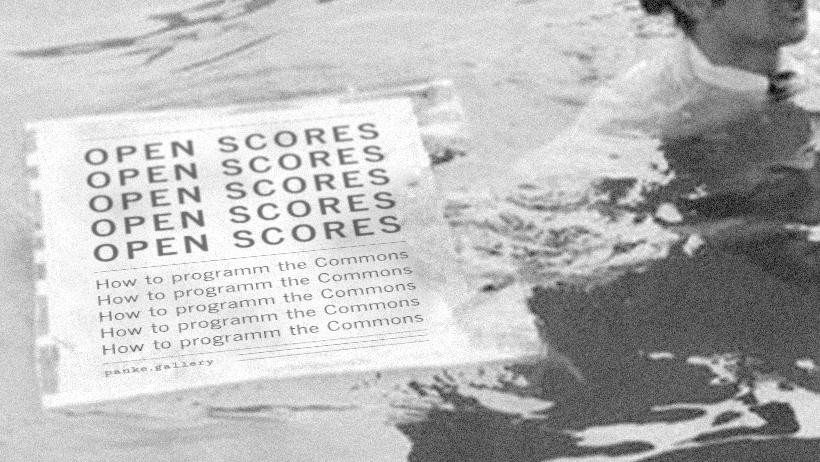
Participants:
Dušan Barok (monoskop.org), Marcell Mars & Tomislav Medak (memoryoftheworld.org), Sebastian Lütgert & Jan Gerber (0xdb.org), Kenneth Goldsmith (ubu.com), Sean Dockray (AAAAARG), Zeljko
Blace (#QUEERingNETWORKing), Ruth Catlow & Marc Garrett (furtherfield.org), Laurence Rassel (erg.be), Marek Tuszynski (Tactical Tech), Michael Murtaugh, Femke Snelting & Peter Westenberg (Constant), Stefanie Wuschitz (Mz* Baltazar’s Lab), Panayotis Antoniadis (nethood.org), Alessandro Ludovico (neural.it), Eva Weinmayr (andpublishing.org), spideralex, Sakrowski (curatingyoutube.net), Creating Commons.
Curated by Shusha Niederberger, Cornelia Sollfrank and Felix Stalder.

The book brings together seven current technofeminist positions from the fields of art and activism. In very different ways, they expand the theories and practices of 1990s cyberfeminism and thus react to new forms of discrimination and exploitation. Gender politics are negotiated with reference to technology, and questions of technology are combined with questions of ecology and economy. The different positions around this new techno-eco-feminism understand their practice as an invitation to take up their social and aesthetic interventions, to join in, to continue, and never give up.
Contributions from Christina Grammatikopoulou, Isabel de Sena, Femke Snelting, Cornelia Sollfrank, Spideralex, Sophie Toupin, hvale vale, Yvonne Volkart. ISBN-13 : 978-1570273650
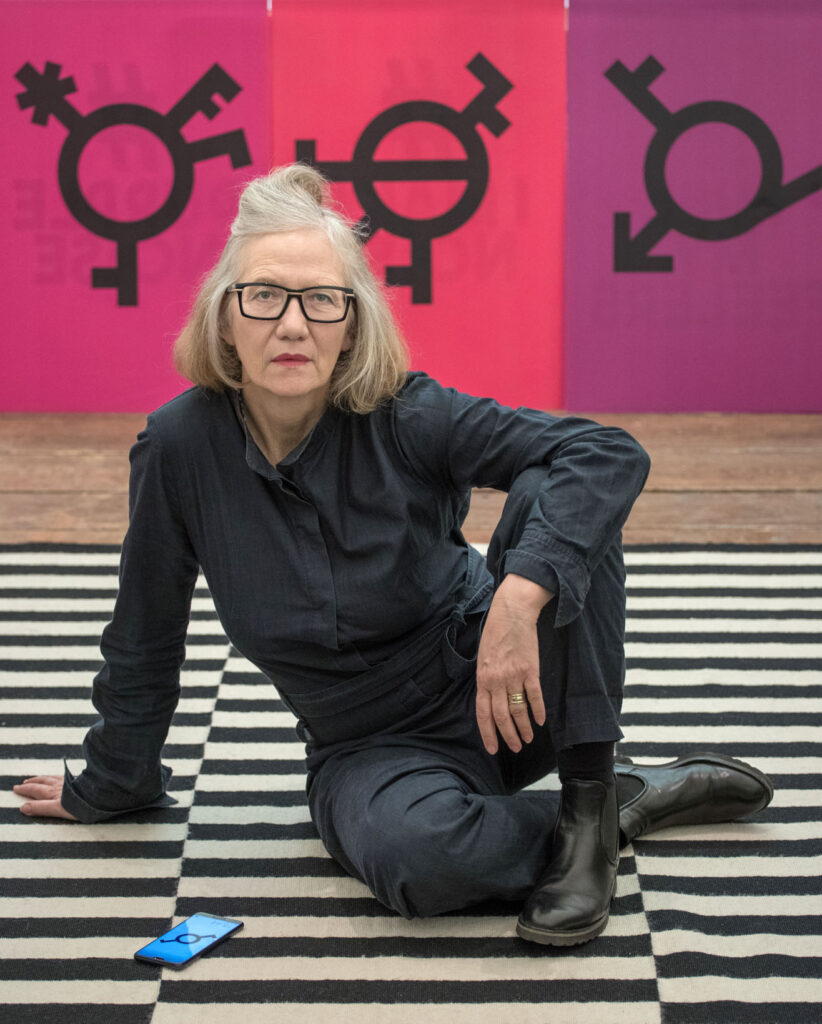
Interview zur Transmediale 2019, veröffentlicht in der taz am 31.1.2019. Cornelia Sollfrank war in den Neunzigern Mitgründerin des Cyberfeminismus. Den Begriff findet sie heute nicht mehr passen. Ein Gespräch über Utopien und die Macht sozialer Medien von Marlene Halser.
Die schönen Kriegerinnen versammelt sieben aktuelle technofeministische Positionen aus Kunst und Aktivismus. Auf höchst unterschiedliche Weise erweitern diese die Denk- und Handlungsansätze des Cyberfeminismus der 1990er Jahre und reagieren damit auf neue Formen von Diskriminierung und Ausbeutung. Geschlechterpolitik wird unter Bezugnahme auf Technologie verhandelt, und Fragen der Technik verbinden sich mit Fragen von Ökologie und Ökonomie. Die unterschiedlichen Positionen um diesen neuen Techno-Öko-Feminismus verstehen ihre Praxis als Einladung, an ihre sozialen und ästhetischen Interventionen anzuknüpfen, dazuzukommen, weiterzumachen, nicht aufzugeben.
Cornelia Sollfrank (Hrsg.), Beiträge von: Christina Grammtikopoulou, hvale vale, Femke Sneltung, Isabel de Sena, spideralex, Sophi Toupin, Yvonne Volkart. transversal texts, 2018. 978-3903046160
Interview by Alessandro Ludovico, published in: neural #61, Speculative Pink, 2018, pp 06-09.
An Interview with Cornelia Sollfrank by Michael Connor, rhizome, New York. The interview was conducted on the occasion of rhizome’s publication of the Net.Art Anthology, 9 March 2017.
Berlin / 10 September 1998
Interview with Cornelia Sollfrank, by Tilman Baumgärtel about Female Extension. Published in: [net.art] – Materialien zur Netzkunst, Tilman Baumgärtel, Verlag für moderne Kunst, 1999.
Berlin / 10.September 1998
Interview mit Cornelia Sollfrank, von Tilman Baumgärtel. Veröffentlicht in: netz.kunst, Jahrbuch 98-99, Institut für moderne Kunst, Nürnberg, 1999. [net.art] – Materialien zur Netzkunst, Tilman Baumgärtel, Verlag für moderne Kunst, 1999.
19. Juni 1997, telepolis, Heise Verlag.
Auszüge aus einem Gespräch zwischen Cornelia Sollfrank und Frank Barth, wissenschaftlicher Mitarbeiter der Galerie der Gegenwart, dem neuen Erweiterungsbau der Hamburger Kunsthalle. Anlässlich seiner Eröffnung am 23. Februar 1997 schrieb das Museum den ersten institutionellen Preis für Internet-Kunst aus. Sollfrank nahm dies zum Anlass, das Projekt Female Extension zu entwickeln.